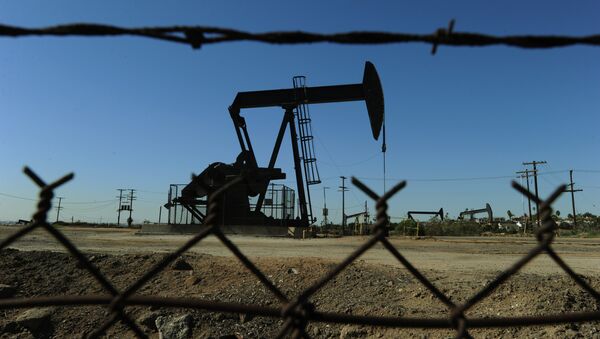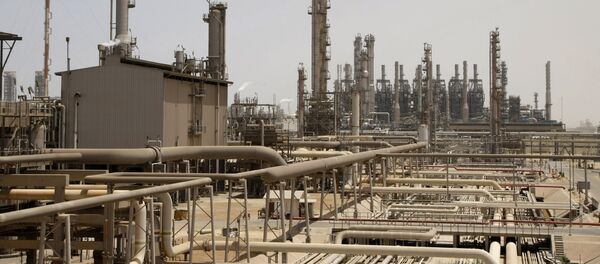MOSCOW (Sputnik), Alexander Mosesov –On Monday, US West Texas Intermediate (WTI) crude and Brent crude futures tumbled to the 12-year low amid the continued oil price slump due to global overproduction and new concerns over Chinese stock market.
"Based on financial factors, the bottom is several dollars up or down in the current range of $32 per barrel. However, given the escalating geopolitical unrest in the Middle East, should war erupt and social unrest intensify in the ongoing Sunni/Shia conflicts which expands far beyond the Iranian/Saudi Arabia standoff, oil could spike well above $60 a barrel," Trends Research Institute head Gerald Celente stressed.
Another expert, a peace and world security studies professor at Hampshire College, pointed at the lack of solidarity among the petroleum exporting countries that led to a dramatic drop in prices.
"One [factor] is the collapse of supplier solidarity, which in the past led to common efforts [mostly via OPEC] to rein in production in order to boost prices. But in the absence of such solidarity, each supplier is now trying to retain market share no matter how low prices go, flooding the market with crude," Michael Klare told Sputnik.
Another cause of oil prices decline is a growing concern over climate change and pollution, and efforts by governments and citizens to curb fossil fuel consumption, he specified.
Earlier on Monday, the Organization of the Petroleum Exporting Countries (OPEC) stated that its Reference Basket of petroleum blends fell in value by 4.88 percent, reaching the same level as October 1, 2003, or $27.07 per barrel.
Recent turbulence in the Chinese stock market has caused a knock-on effect across the world. China's trade suspension last week was followed by Wall Street sliding one percent and European stock markets slumping by two percent.



